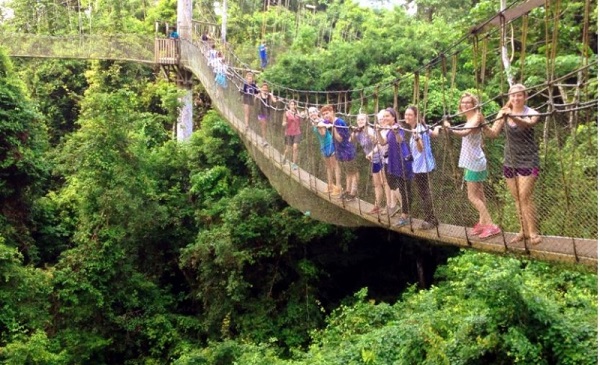Enimil Ashon, the president of the non-governmental organization Earth Rights Ghana, has urged those involved in the tourism sector to join the fight against climate change, claiming that it has an impact on a variety of environmental resources, including wildlife, biodiversity, beaches, and others that are important tourist attractions.
According to Mr. Ashon, the effects of climate change have already been felt in tourist destinations, where they have resulted in the loss of lives, homes, and jobs, and they could further threaten the nation’s tourism industry.
“With its close connections to the environment and climate itself, tourism is considered to be a vulnerable and highly climate-sensitive economic sector.
“The effects of climate change are already becoming evident at various destinations across the world. Global climate change has also begun influencing decision-making in the tourism sector,” Mr Ashon said.
At a stakeholder’s engagement on Greening Ghana’s Hospitality Industry in Accra last Wednesday, Mr Ashon added that tourism was not just a victim of global warming.
“It also contributes to the problem. Tourism alone is responsible for eight percent of the world’s carbon emissions. For example, when tourists travel, carbon emissions are generated throughout the trips. Flying is the largest source of these emissions,” he said.
Read Also: csos-urge-au-to-pursue-fossil-free-energy-future-for-africa
Mr Ashon said other activities such as using the air conditioners in hotels also produced carbon dioxide,” he added.
The engagement brought together representatives from the Ghana Tourism Authority, hoteliers, catering services, the Environmental Protection Agency, and event organizers, among others.
Mr Ashon said changing the way society used water in tourism establishments would strengthen the planet’s ecosystem.
“It will reduce the risk of extreme weather events that make water unpredictable, polluted, and scarce. This could involve using less fresh water for showering, collecting and using rainwater for growing crops or sanitation or improving our systems for managing wastewater.
“Floods, droughts and heat which are effects of climate change have a direct impact on the availability of the various types of water that humans need,” he noted.
Mr Ashon also noted that tourism’s energy production, product consumption and irresponsible waste management contributed directly to climate change.
“This is done by adding carbon-based particles into the air. Solid waste is a large contributor to greenhouse gas emissions. Food waste contributes to greenhouse emissions because its degradation creates methane, a very potent greenhouse gas,” he said.
Consequently, Mr Ashon intimated, understanding and anticipating the potential seasonal and geographic shifts in tourism demand would be critical for major stakeholders in the sector.
“National parks are among the most popular destinations in the forest and biodiversity tourism sub-sector. In recent years, visits to forests as places for recreational activities such as hiking have been gaining popularity.
“Modeled predictions suggest that climate change will result in a 12 percent increase in forest fires by 2050 that are displacing and killing animals in different parts of the world, leading to declining tourism activity,” he said.
Mr Ashon noted that ease of travel had led to increased interest in marine wildlife, including whales, sharks, dolphins, sea lions, and turtles, while sailing, cruising and diving were some of the ways used to explore such regions.
“Climate change is adversely affecting some ocean and sea life tourism destinations. Ghana cannot escape the consequences of this warning because we all know that if there is one area that has gained popularity in Ghana, it is beach tourism,” he said.
Mr Ashon noted that the accommodation sub-sector accounted for 20 percent of the emissions generated in the tourism sector.
“The sub-sector is an intensive energy consumer. Experts, however, believe that there is significant potential in improving carbon efficiency. The use of existing low-emission technologies and the implementation of best practices are likely to reduce emissions by 30 percent to 40 percent. Proper energy management could also mean business due to savings in the energy bill,” he noted.
Story adapted from Business Ghana
